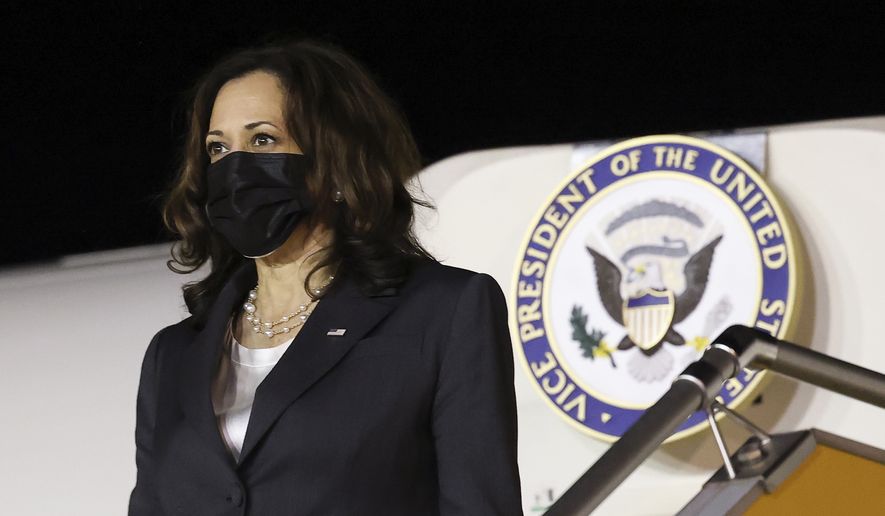Vice President Kamala Harris’ departure for Vietnam was delayed by several hours Tuesday after the U.S. embassy in Hanoi informed her office of a “report of a recent possible anomalous health incident.”
The U.S. government often uses that term to refer to the unexplained “Havana syndrome” that has afflicted hundreds of U.S. diplomats and other officials in recent years.
“Earlier this evening, the vice president’s traveling delegation was delayed from departing Singapore because the vice president’s office was made aware of a report of a recent possible anomalous health incident in Hanoi, Vietnam,” said Rachael Chen, spokeswoman for the U.S. embassy in Hanoi, in a statement. “After careful assessment, the decision was made to continue with the vice president’s trip.”
Ms. Harris took off from Singapore on Air Force Two after a more than three-hour delay.
Upon the plane’s arrival in Hanoi, Harris spokeswoman Symone Sanders told reporters that the vice president “is well, all is fine and [she’s] looking forward to meetings in Hanoi tomorrow.”
“This has nothing to do with the vice president’s health,” Ms. Sanders said.
Earlier, in Singapore, Ms. Harris criticized China for trying to “intimidate” its neighboring states in the South China Sea. She said China isn’t playing by accepted international rules in the region.
“We know that Beijing continues to coerce, to intimidate, and to make claims to the vast majority of the South China Sea,” she said in a speech. “Beijing’s actions continue to undermine the rules-based order and threaten the sovereignty of nations. The United States stands with our allies and partners in the face of these threats.”
Beijing has laid claim to most of the vast sea, a major shipping lane bordering Vietnam, the Philippines, Malaysia and Taiwan. International tensions have escalated in recent months.
Ms. Harris said the region is “critically important to our nation’s security and prosperity.”
“Our partnerships in Singapore, in Southeast Asia and throughout the Indo-Pacific are a top priority for the United States,” she said, adding that the U.S. isn’t seeking to force countries in the region to choose between Washington and Beijing.
• Dave Boyer can be reached at dboyer@washingtontimes.com.




Please read our comment policy before commenting.